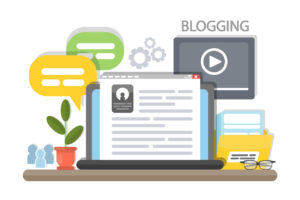Social media is the ground of a second American Civil War.
For years it’s been brewing. We caught a glimpse during the 2016 political campaign when people used their personal accounts to declare the valor of their candidate and demonize their opposition with an intensity not experienced in the past. The conflict drove several users to different platforms, drop off social media temporarily, or cancel their accounts permanently.
We are well beyond the highest point of conflict in 2016. 2020 bait and switched humanity like a scam letter from a Nigerian Prince. We came in hopeful at the start of the decade, then got double whammied by COVID-19 and the Black Lives Matters protests. Plus he-eeeeyyyy! It’s another presidential election ye-ear!
As mentioned in previous posts, social media platforms all have different purposes. So it’s not surprising that they’ve been used for different forms of communication during COVID-19, BLM protests, and this political season. Facebook has become an online siege filled with memes, vague graphics, and links to blog posts and articles. Yet, the quicker, limited character count posts of Twitter has allowed real-time communication between protesters, first comments on news events, and an outlet for rants (on both sides) before addressing more level-headed parts of life. Truly Twitter is the unsung hero of this war. If Facebook were Congress, Twitter would be the Troops. And while you can find some conflict on Instagram, it’s tame in comparison. Part of this stems from its reputation as as a lifestyle platform where the most you can do is ❤️ something , but more that it is extremely difficult to share links to any real information. It’s basically Canada. I’ll just leave it at that.
Past wars all had writers whose messages would have just been too complicated social media. Thomas Paine influenced the American Revolution with “Common Sense” and The American Civil War had Anna Ella Carroll. Today we have bloggers. And if you are frustrated by the limitations of social media platforms, then it’s time to consider starting a blog too.

Are Blogs Still a Thing?
According to a 2020 article by Oberlo, there are more than 600 million blogs. At first, that may seem like a lot of competition, but actually it isn’t when you consider the number of different topics those blogs cover. The reality is you will only compete with blogs that cover topics similar to yours, and even then you can cut down the competition by really refining the topics to what you know best. If it’s politics, take that angle. If it’s social justice, take that angle. Don’t let your posts stray into random territory. You would be better off starting another blog.
Once you have started blogging, you can better use your social media platforms to direct people to a fully fleshed out message. Not everyone is going to comment on your material, so it is important to track visits to your blog using some form of analytics. And don’t get discouraged if the numbers are low at first. Every author has to work to build their audience. Every single one. However, it is better to fit the message to the platform than try to force the platform to fit the message.
